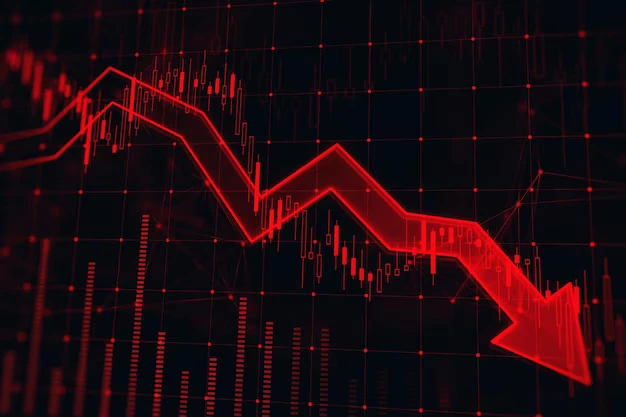The Indian stock market experienced a significant crash on Monday, triggered by panic selling in response to the detection of three cases of the Chinese HMPV (Human Metapneumovirus) virus in India. Investor wealth plunged by ₹11 lakh crore, falling to ₹438.79 lakh crore, compared to the previous session’s ₹449.78 lakh crore valuation.
Both major indices, the Sensex and Nifty, saw a dramatic drop:
- Sensex closed 1,258 points lower at 77,964.
- Nifty slumped by 388.70 points, ending at 23,616.
Out of the 30 Sensex stocks, 27 ended in the red, reflecting weak investor sentiment. Tata Steel, NTPC, Kotak Bank, PowerGrid, Zomato, Adani Ports, IndusInd Bank, Asian Paints, and ITC were among the top losers, falling by up to 4.41%.
In contrast, Titan, HCL Technologies, and Sun Pharma were the only gainers, with modest increases up to 0.60%.
Market Activity:
- 176 stocks reached their 52-week highs, while 113 stocks hit their 52-week lows.
- The market breadth was overwhelmingly negative, with 3474 stocks closing in the red out of 4244 stocks traded.
The BSE Midcap Index plunged by 1143 points, closing at 45,793, while the BSE Small Cap Index lost 1778 points, closing at 54,337.
The BSE sectoral indices were all in the red, with consumer durables, capital goods, banking, and auto sectors being the hardest hit.
Factors Driving the Market Crash
The market reaction to the HMPV virus can be attributed to a combination of factors:
- Global Health Concerns: The initial surge of HMPV cases in China raised alarms regarding potential global health repercussions, which were exacerbated by the confirmation of cases in India. Panic selling is often a reaction to fears of widespread disease, as investors seek to protect their wealth from anticipated disruptions in the economy.
- Investor Sentiment: Financial markets are highly sensitive to sentiment and uncertainty. The sudden detection of a new virus often leads to widespread uncertainty, making investors more likely to sell off risky assets.
- Macroeconomic Uncertainty: Alongside concerns over HMPV, broader global uncertainties surrounding US economic policies, inflation, and the strong US dollar added to market volatility, compounding investor fears.
Also Read: Human Metapneumovirus (HMPV) Detected in Karnataka
Economic Implications for India
The economic fallout from such a health scare can have several implications for India:
- Investor Confidence: A significant market crash can shake investor confidence and affect foreign direct investment (FDI). Long-term uncertainty can result in reduced economic growth due to a cautious investment climate.
- Sectoral Disruptions: Sectors like tourism, airlines, and hospitality are most vulnerable during health crises. The Indian economy, which is already under pressure from inflation and other external factors, could experience a further slowdown if such crises are not contained effectively.
- Government Response: The government’s ability to manage both the public health and economic aspects of such crises will be critical. This includes strengthening surveillance mechanisms, providing healthcare infrastructure, and ensuring that the economy continues to function smoothly during such disruptions.
Global Context and Geopolitical Considerations
India is not the only nation experiencing these concerns; global markets are also feeling the repercussions of the HMPV outbreak and other health-related crises. The interconnectedness of global markets means that any significant event—whether a health scare, geopolitical conflict, or economic downturn—can send ripple effects across borders, impacting global trade and investor sentiment.
The HMPV scare in India comes at a time when the world is still grappling with the aftermath of the COVID-19 pandemic, adding to the sensitivity of markets. The global economy faces many challenges, including the tightening of monetary policies, rising inflation, and the ongoing war in Ukraine.

